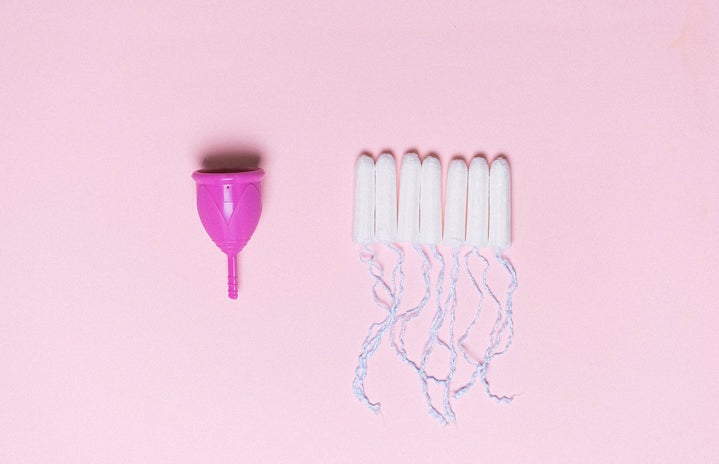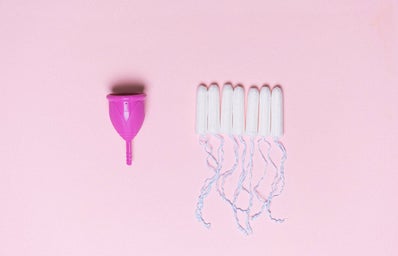By now you may have heard of menstrual cups – whether from your friends discussing this new trendy alternative or from the floods of Instagram posts screaming about their benefits which have led you here, questioning if you should make the switch.
I’m here to explain these benefits and help you finally ditch tampons and pads, showing you that it’s not as daunting of a swap as you may think.
A menstrual cup is a reusable feminine hygiene product, they hold more blood than other methods, making them more eco-friendly than tampons! Whilst tampons need to be changed every 4-6 hours, menstrual cups can be worn up to 8-12 and you only need to invest in one cup every 2-4 years. This saves you massive amounts of money as you won’t be buying boxes of tampons or sanitary pads each month. Another everyday benefit of using menstrual cups is that there is a lot less faff, this is because cups can hold more blood than tampons so there are fewer trips to the bathroom needed. Also, menstrual cups help keep your vaginal PH and beneficial bacteria intact so there is no odour, unlike tampons which absorb fluid and blood exposing it to air, releasing a certain odour as well as disturbing the sensitive PH.
Now we have touched base on two of the convenient benefits of using menstrual cups, it’s time to talk about the health benefits. Using menstrual cups removes the risk of toxic shock syndrome which can occur from using tampons. TSS can happen when tampons aren’t changed regularly enough and can cause long term damage to women and can be fatal if not treated. Another issue with tampons that a lot of people don’t realise is that many companies use chlorine bleach to make them. Chlorine bleached is used to reduce the chance of fibres breaking off the tampons, however, this still happens, and the chemicals are a leading contributor to TSS. Without realising, using tampons can worsen our PMS symptoms by making our cramps worse and bleeding heavier, although you can check the box on whether tampons you’re purchasing use chlorine bleaching… do you really have the time or interest to do that? Menstrual cups however are made from either silicone or latex rubber so there is no nasty chlorine bleaching involved.
Just like trying anything new regarding your health, do your research! There are now so many companies that sell menstrual cups but there are things to consider before you make your purchase. Depending on your flow, there are different sizes so choose one that best suits your body, many companies offer guidance on how to choose your cup so make sure to check out the information on their sites. Have a look into what the company is about, some offer vegan-friendly cups and others provide support in fighting period poverty such as Ruby Cup.
It is important to care for and clean your cup so that it stays in good condition and does its job. During your period you should rinse your cup each time you empty it and if available use mild soap before reinserting. Once your period has ended it’s time to sanitise your cup, this can be done by simply boiling the cup in water for 3 minutes, or you can soak most cups in cold water with a sterilising tablet for 30 minutes. Whilst drying make sure to keep the cup out of direct sunlight to avoid any damage and ensure it’s dry before storing it in any bags.
For more guidance and information check out Hello Cup, they provide simple steps on inserting cups, cleaning and care.


